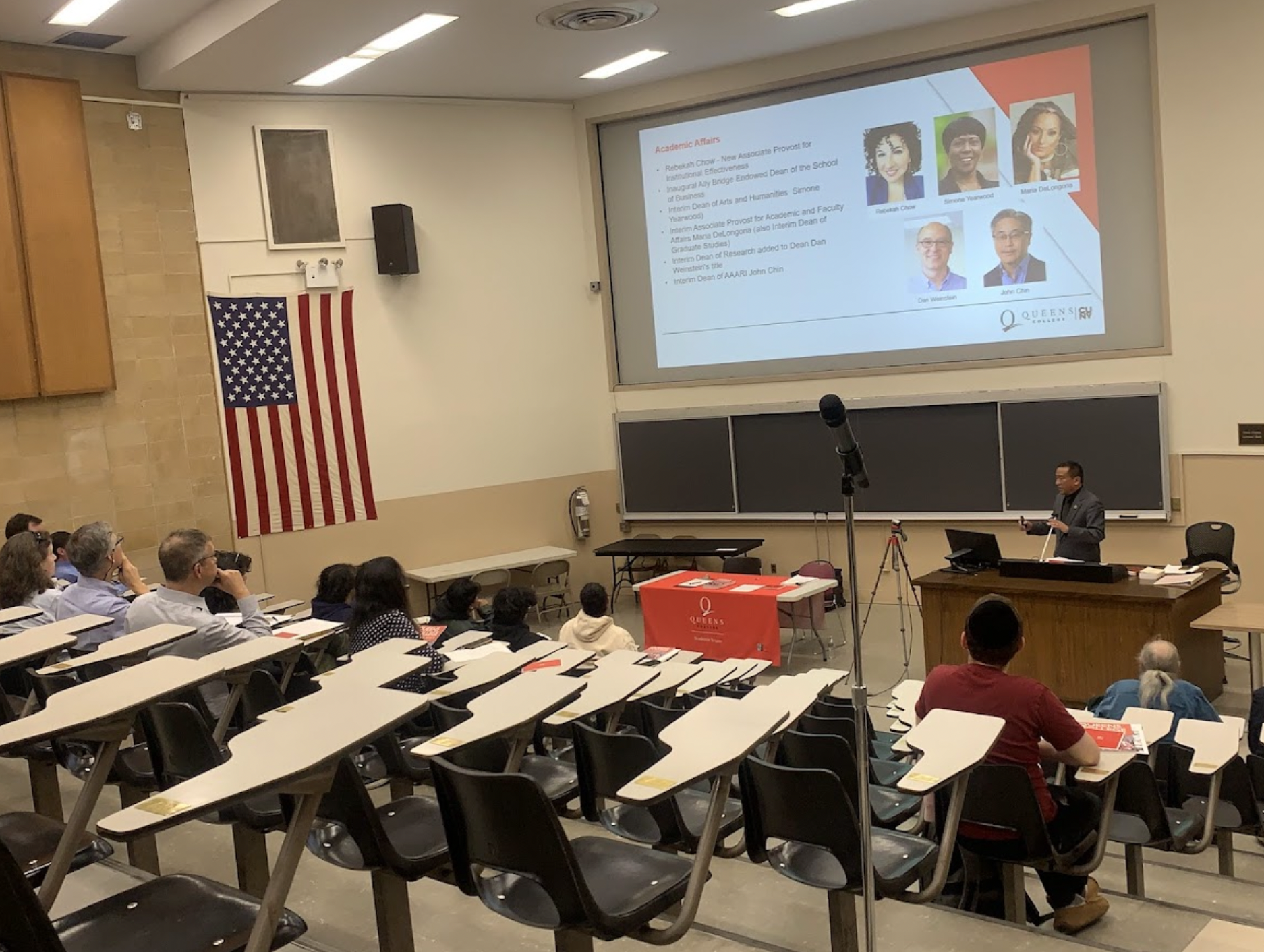The Queens College Student Senate plays a vital role in campus life, serving as both the legislative body of the QC Student Association (QSAC) and as a representative of student interests within college governance.
The Student Senate is the governing body focused on enhancing student life and improving the overall college experience. While the Student Senate primarily advocates for student needs through the QSAC, its members also hold seats in the Academic Senate, providing them with an additional platform to influence academic policies and decisions, which has been the case since the Academic Senate’s formation in Spring 1971, according to Academic Senate Administrative Coordinator Katarzyna Zajac. The Academic Senate, which consists of 40 full-time faculty and 20 student senators, works to address issues related to academic affairs such as curriculum changes and degree requirements. The structure of the Student Senate ensures that student voices are well-represented across different aspects of campus life. It consists of elected student representatives from each class year—freshmen through seniors—ensuring that every group of students has a say in the decisions that affect them.
“I believe that this actually makes our Academic Senate pretty unique, as many other institutions of higher education only really allow faculty to participate in this way,” Zajac told The Knight News.
The Student Senate’s main goal for this academic year is to expand student life by supporting more clubs, student-led organizations, and events on campus, according to Farid Oumorou, a current student senator.
One of the Senate’s key responsibilities is allocating funds to student organizations. Recently, the Student Senate passed a student referendum to secure additional funding for clubs and student employment. Oumorou expressed support for this initiative, emphasizing that clubs play a vital role in student engagement and that the Senate is committed to ensuring they have the resources they need to thrive
Beyond its financial responsibilities, the Student Senate also engages in discussions about policies that could have a direct effect on students, often in collaboration with the Academic Senate. The Student Senate harnesses its power to bring student concerns to the forefront of college governance and affect policy-making. The Senate’s open-door policy allows students to voice their concerns, suggest new ideas, and contribute to ongoing improvements on campus.
“The relationships we build with the administration as student senators allow us to easily communicate on important topics,” Oumorou said. “If anyone wants to get involved with the Student Senate, it’s as easy as talking to any of us. We are always welcoming to new ideas and individuals wanting to be more active on campus.” Oumorou described being part of the Student Senate as becoming the bridge between students and administration.
This sentiment was echoed by former deputy chair of the Academic Senate, Siddharth Malviya. In 2018, Malviya became involved in the Student Senate after talking to Carmine Couloute, the president of the QCAS then. Couloute’s leadership and dedication inspired Malviya to participate in student governance and contribute to our campus community.
As the new academic year unfolds, the Student Senate remains steadfast in its mission to enhance student life at QC. From securing resources for clubs to addressing student concerns with the administration, the Senate continues to play a crucial role in ensuring that QC remains a place where students feel supported, heard, and able to thrive.
The QC Student Senate is more than just a legislative body; it is an essential force driving positive change on campus, ensuring that every student has the opportunity to succeed and make the most of their college experience. For students interested in learning more about the Student Senate or the QCAS’s activities, visiting the Student Union building or attending one of the Senate’s open meetings is a great place to start. Student senators are always eager to connect with their peers, discuss concerns, and work together to foster a positive, inclusive campus atmosphere.











